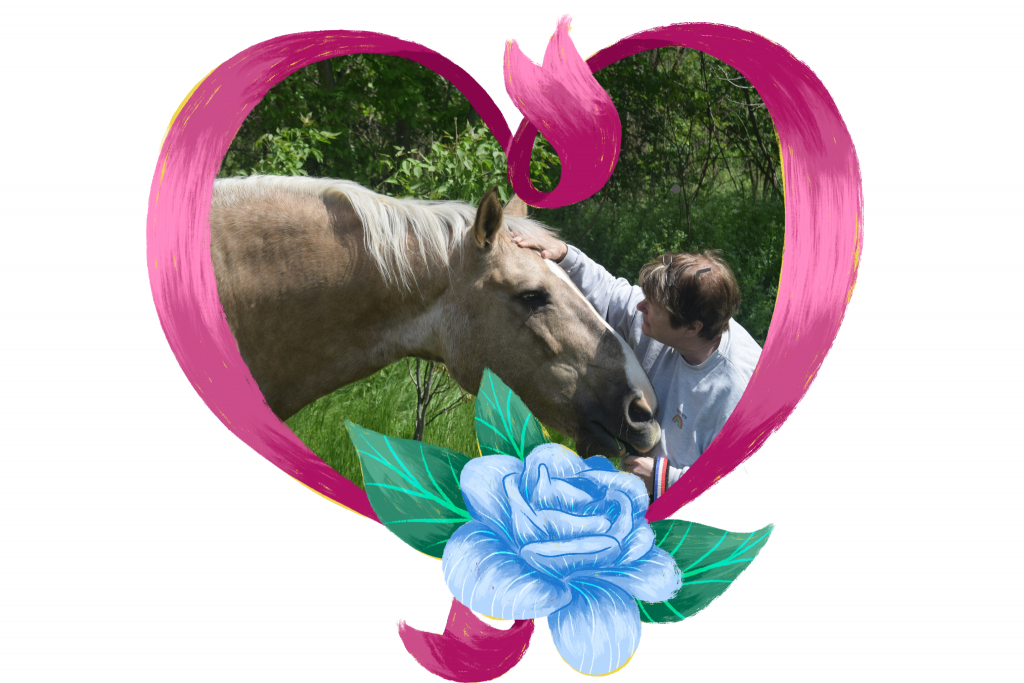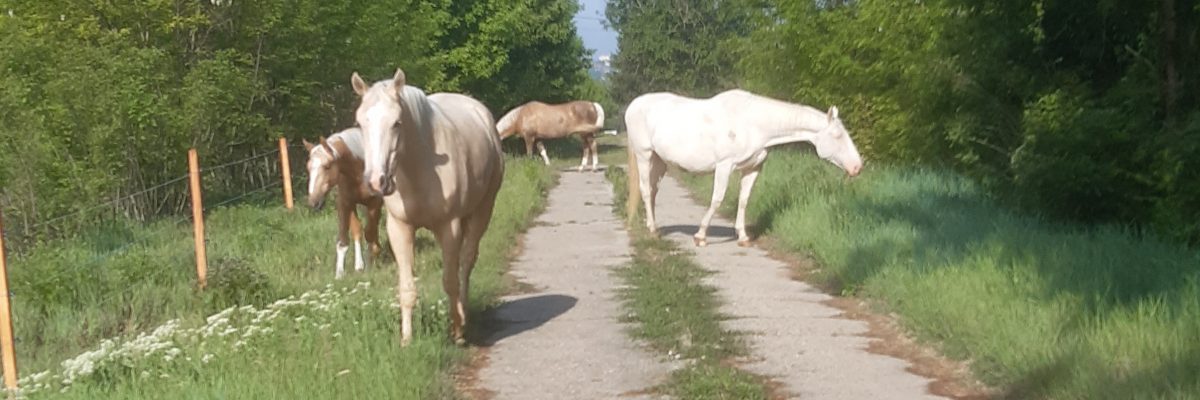Do You Talk to Your Horse?
I believe that all of us who have horses talk to them in one way or another. It feels completely natural – we share our time, our daily lives, and often our emotions with them. Sometimes, it even feels like our horses truly understand us, doesn’t it?
But even though we constantly communicate with them, we actually speak two completely different languages. We humans think in words and logic, while horses think in images and feelings. So, even though we can teach them commands and routines, have you ever thought about how much you actually listen to your horse? How it expresses itself – and what it’s trying to tell you?
Many people might say: “Well, I keep my horse’s stall clean, I feed it at the right times, and I bring it inside when it wants.” But are those truly the horse’s own desires – or are they simply things we humans have decided it needs?
Horses Communicate in Images
Did you know that horses think in images? And that you can actually transfer images to your horse through your mind? This means that when you’re with your horse but your head is full of everyday worries – like what to cook for dinner, when to pick up the kids, or that your car is broken – your horse might pick up on the images you’re unconsciously sending.
That’s why it’s so important to be mentally present when working with your horse. If you focus on your horse and your connection, you’ll soon notice a change. Your horse can feel when you’re truly there – and when you’re just physically present but mentally somewhere else.
What Does Your Horse Want?
A common concern is: “But if my horse gets to decide, it won’t want to work!”
But have you really tested that? And if your horse doesn’t want to work – have you asked yourself why? Is it because it’s lazy, or is it because it doesn’t see any meaning in what you’re asking? Maybe the work feels uncomfortable or stressful, maybe there’s a physical issue, or maybe the horse simply hasn’t understood what you want.
Horses want to connect with us, but if we only take and never give, there won’t be any real cooperation. Eventually, the horse stops expressing its own needs and just does what we say because it’s easier. We might interpret that as the horse being obedient and well-behaved – but in reality, it has simply given up.
Listen to Your Horse
If your horse doesn’t want to work with you, take it as an opportunity to pause and truly feel the situation. Is it physically okay? Are there signs of pain or stiffness? Does it feel safe in its environment? Or has it perhaps learned that training is always repetitive or unpleasant?
By being more attentive to your horse’s signals, you can create a deeper and more meaningful relationship. When your horse feels seen and understood, it will want to cooperate – not because it has to, but because it wants to.
So, next time you’re with your horse, take a deep breath, let go of all other thoughts, and be fully present in the moment. Tune into your horse, listen to what it’s trying to tell you – and most importantly, have fun together!


